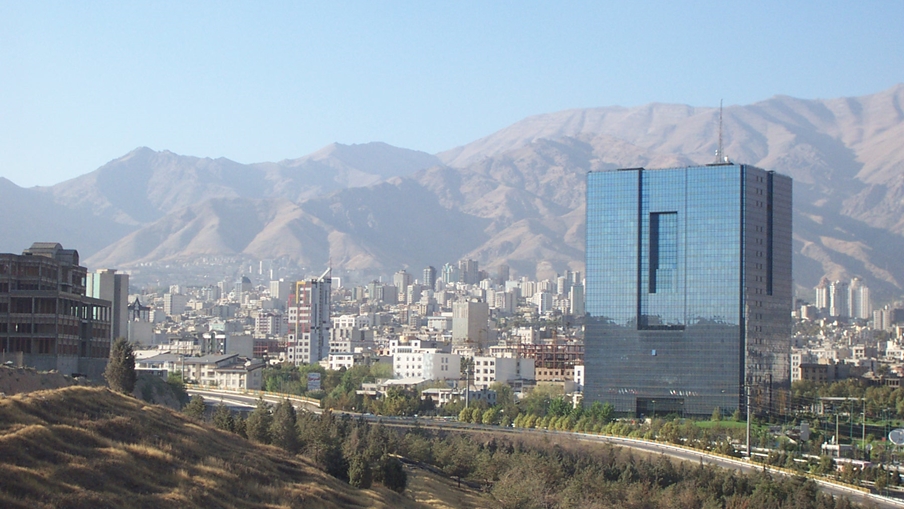Sanctions on the Central Bank of Iran (CBI) could complicate the few remaining avenues for humanitarian trade with Iran and imperils a fledgling channel for trade with the European Union.
The sanctions, announced Friday, were the first imposed against a central bank under the U.S. Treasury Department’s counterterrorism authority, the department said. The CBI had already been sanctioned, but the counterterrorism designation adds new obstacles to humanitarian exports to Iran, such as food or medicine, according to sanctions practitioners and trade groups.
“From here on out, any humanitarian trade with Iran cannot involve the CBI, which is a major impediment to such trade given the CBI’s role in the economy and in foreign exchange markets,” Brian O’Toole, a nonresident senior fellow at the Atlantic Council, wrote Friday.
The U.S. has a longstanding policy of allowing for the sale of agricultural commodities, food, medicine and medical devices, the Treasury said Friday when announcing the sanctions. The Office of Foreign Assets Control (OFAC) will “continue to consider requests related to humanitarian trade with Iran as appropriate,” the Treasury said.
OFAC had authorized exports of humanitarian goods to Iran through exceptions provided under the Trade Sanctions Reform and Export Enhancement Act (TSRA). The TSRA prohibits humanitarian trade with a foreign organization, group or person designated under U.S. counterterrorism authorities, according to the regulation.
The U.S. in May 2018 exited the nuclear deal and later reimposed its sanctions; tensions with Iran have flared ever since. President Donald Trump on Tuesday referenced Friday’s sanctions on the CBI during a speech before the United Nations, saying that as long as Tehran’s behavior continues, “sanctions will not be lifted; they will be tightened.”
U.S. sanctions are often cited in media reports as a reason for the struggle of Iranians to obtain medicine. Abbas Kebriaeezadeh, a professor of pharmacology at the Tehran University of Medical Sciences and vice chair of the Iranian Pharmaceutical Industries Syndicate, wrote in August for Foreign Policy that cancer patients, and those with rare or advanced diseases, are most at risk due to medicine shortages.
“Are they going to sanction trade finance for cancer medication? This would allow [OFAC] to do so,” Adam M. Smith, a former senior Treasury official who is now a partner at the law firm Gibson Dunn & Crutcher LLP, said in an interview with Kharon.
“The CBI has been sanctioned for a long time,” Smith said, noting that the counterterrorism designation adds “secondary sanctions exposure for any entity that wants to engage with CBI, for anything.”
Beyond providing an obstacle to U.S. humanitarian exports, the counterterrorism designation of the CBI also complicates the launch of the Iranian side of INSTEX, the mechanism by which European countries sought to facilitate trade with Iran.
INSTEX has struggled to get off the ground since it was announced in January. Iran’s Supreme Leader Ali Khamenei has called it “meaningless” and “a bitter joke,” according to media reporting. The EU said INSTEX was operational in June, but a French diplomatic source told Reuters earlier this month that INSTEX won’t work until Iran sets up a counterparty organization for it, and meets international standards against money laundering and terrorist financing. Tehran has struggled to pass legislation against money laundering and terrorist financing that would meet the international standards set by the Financial Action Task Force (FATF).
The Special Trade and Finance Institute (STFI), the Iranian counterparty to INSTEX, was launched in late April with an initial capital of 1 billion rials (USD 24,000), according to media reporting and corporate records. STFI “has a close relationship with the CBI,” the Tehran Chamber of Commerce, Industries, Mines and Agriculture (TCCIM) said Saturday.
STFI’s managing director said seven Iranian banks are among its shareholders, Iranian media reported. The shareholders include sanctioned private lenders Bank Refah Kargaran and Pasargad Bank, as well as Bank Keshavarzi Iran, a specialized state-owned bank servicing Iran’s agricultural sector, according to Iranian corporate records.
The three banks were added back to the U.S. sanctions list in November 2018 following the U.S. exit from the nuclear deal.
STFI chair Afsaneh Lak-Tabriz also holds a stake; Lak-Tabriz was appointed in April 2018 as director of international finance at CBI by then CBI Governor Valiollah Seif. She previously led the CBI’s foreign exchange department, according to Iranian media reports and corporate records.
Valiollah Seif was removed as head of the CBI following his designation by the U.S. in May 2018. He was accused by the Treasury of directing the transfer of tens of millions of euros to Iraq to benefit the Islamic Revolutionary Guard Corps - Qods Force (IRGC-QF).
“How Iran will navigate this development, and whether foreign banks will remain willing to facilitate humanitarian trade with Iran, remains a looming unknown,” Tyler Cullis, a Washington, D.C.-based attorney specializing in U.S. economic sanctions, wrote Tuesday on Lobelog, a website that posts analysis on U.S. foreign policy.
Analysts from the Iran team contributed to this report.
